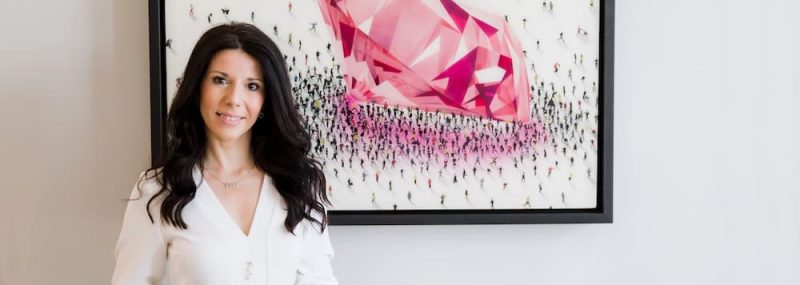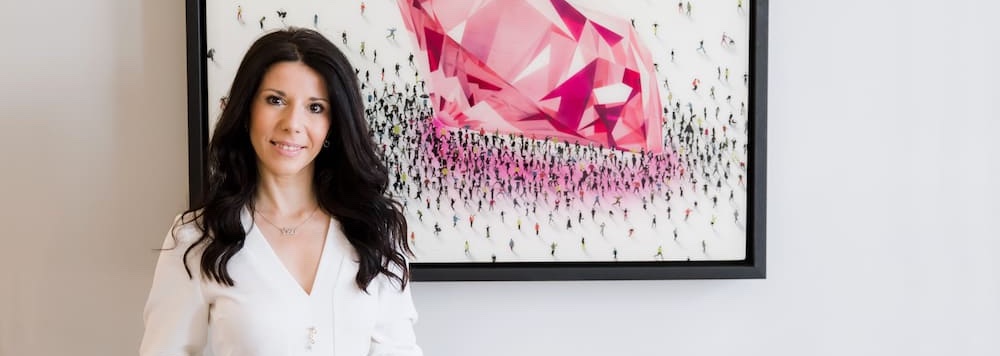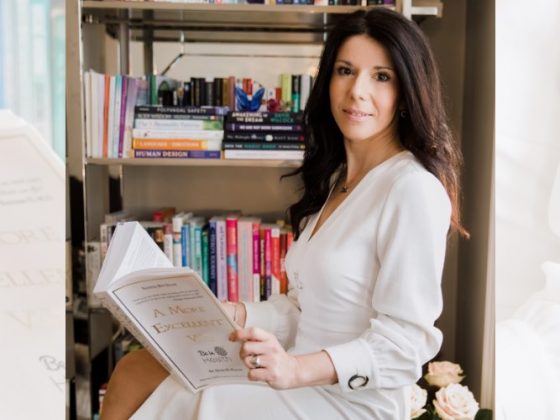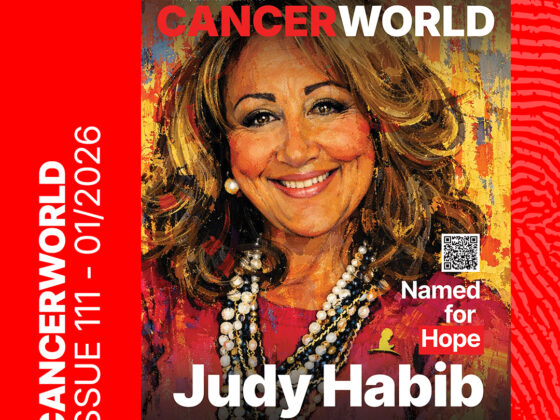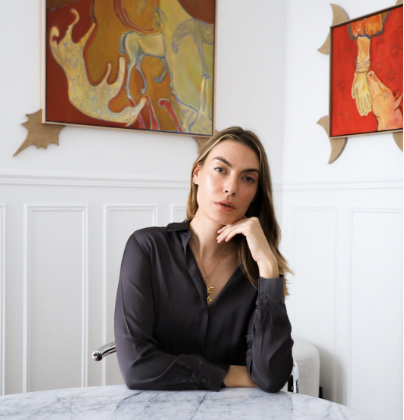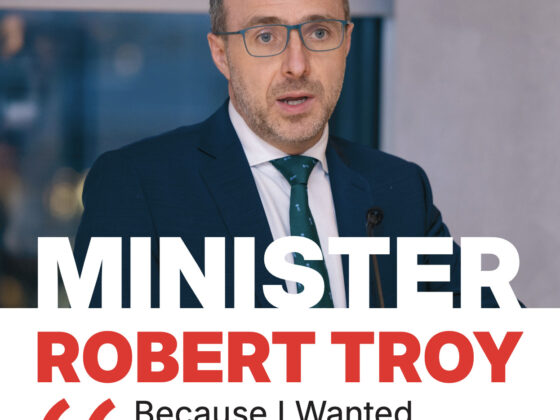An oncologist committed to delivering a very personal, holistic care, Aleksandra Filipovic has grown into her current role at PureTech Health – a clinical stage biopharma company – where she is Head of Oncology, working with academic and industry scientists to accelerate the development of innovative therapies. She still sees patients at a weekly clinic at one of the university hospitals attached to Imperial College London.
Her life combines deep science with deep care, and she couldn’t be happier. “I am blessed to be in a role where I get to be my whole self: a scientist, a researcher, an entrepreneur, and a clinician.”
Born in 1979 in the city of Niš in southern Serbia, Filipovic spent her formative years in a country beset by war, and subject to sanctions and visa restrictions. Her story is one of embracing such opportunities as presented themselves – even if they weren’t quite what she was looking for.
An unusual childhood prepared her well for her life ahead. Like many doctors, medicine was in the family. Filipovic’s mother was an internist who had found her own way to specialising in oncology. Having been appointed at a young age to what was seen as a ‘dead end job’, in charge of a hospice located on the outskirts of Niš, and with no guidelines or protocols for cancer care in the country, she travelled to find the information she needed on how best to treat the patients in her care. She went on to develop the hospice into a full blown oncology centre, adding a well-equipped outpatient clinic to the much improved and equipped inpatient facility. She would later go on to write the first oncology curriculum and teaching book for Serbia.
Filipovic’s father specialised in medical nuclear physics. He took the bold step of leaving a secure job within the state healthcare system to open his own diagnostic laboratory – “the first independent laboratory in Serbia,” says Filipovic, which “paved the way in the whole Balkan region as the place you could do diagnostic tests that no one else was offering at the time.”
Both parents were heavily focused on the power of research and innovation to improve the diagnostics and care they could deliver, and travelled constantly for study, meetings and conferences, taking the young Aleks – an only child – with them. “The world of medical meetings, hospital hallways and exam rooms, laboratories and library halls became like second nature to me from a young age. It was both lonely and educating, both tough and rewarding in the long run,” she says. By the time she reached medical school, Aleks was already helping the European School of Oncology launch their first summer course on oncology for medical students.
Was it all a bit intense? “I didn’t know any different. I enjoy studying,” says Filipovic. While she admits there were times she would have liked to be able to take her foot off the pedal, she feels deeply grateful for this start in life. “At the time when travel from Serbia was severely restricted because of sanctions, visa regulations, and war in the region, the opportunity my parents provided for me in this manner unlocked so many treasures – love of travel, languages, different cultures – and set me up for life,” she says. “The world of medical meetings, networking skills and travelling for learning became so deeply ingrained in me, as qualities that have since accompanied and enable so many facets of my career and life as a whole.”
A difficult time to graduate
With her straight A track record, Filipovic sailed into medical school at Niš University. But on graduating in 2004, she and her fellow medics found themselves in a world where the old certainties were disappearing. A medical degree had traditionally meant a job for life, she explains. “You go after an assistant, a docent and then professorship academically. You get a clinical job, you get speciality training. You get a job in a hospital. You stay there for 40 years. You retire. That all got jumbled up for my generation. Because we graduated on the back of a war.”
She looked around for other options. What she found – an unpaid six-month stint at a cancer research lab at Imperial College London – would turn out to be the gateway to her entire career. It involved two open doors, a certain level of resilience, and a very steep learning curve.
The first open door came in the form of a scheme run by Serbia’s government to support 100 graduates with 6- to 12-month scholarships for postgraduate studies.
The second door was opened by Charles Coombes, Professor of Medical Oncology at Imperial College London, when Filipovic knocked on it to ask whether he could use, for six months, “a free pair of working and willing hands of a doctor who spoke good English.”
An unpaid six-month stint at a cancer research lab at Imperial College London would turn out to be the gateway to her entire career
Filipovic had met Coombes a year earlier at an ASCO meeting. She had accompanied her mother to an investigators’ meeting of the Intergroup Exemestane Study trial – though somewhat reluctantly, as she was aware of how it looked to be seen being “schlepped around by mum”. This large study was looking at the benefits of switching to exemestane after two years of tamoxifen in the adjuvant treatment of postmenopausal early breast cancer, and Coombes was the principal investigator.
The world of clinical trials was completely new to Filipovic, and she says she was captivated by what she saw and heard. “It was all new to me and so interesting. Then we started talking afterwards at dinner. He was kind to give me his email address and said if you need anything from me let me know. Lo and behold a year later I wrote to him and said, ‘do you want a free pair of hands?’”
The ‘yes’ that Coombes responded with is what made it all possible, says Filipovic. “The six months scholarship turned into 17 years and running, and a career I only could have dreamed of.”
A crash course in lab science
This was a stressful period for a young medic used to being on top of her subject. “I didn’t understand a single word anyone was saying when I got here,” she says. “As much as I was proficient in English, I spoke zero ‘science’.” In her first three months, she remembers spending “endless hours” on PubMed – virtually inaccessible at the time in Serbia – “trying to decipher codes of cell line names and laboratory protocols, and taking two hours on average to grasp a simple abstract in a peer reviewed manuscript.”
She also remembers, with gratitude, the “endless patience and understanding” of colleagues and supervisors – a welcome contrast to the signals coming from her parents, that she should knuckle down and get on with it. “My daily cries of ‘I have no idea what I am doing here,’ were met with: ‘ Be grateful you are there, stay quiet, do as you are told.’”
Then suddenly, after three months in the ‘lab wilderness’, Filipovic woke up one day, and everything just made sense. “The veil lifted. All of a sudden I knew exactly what I was doing. I will never forget the feeling that came when the first experiment I ever designed and executed on my own actually worked. The excitement and fuel for wanting more of that feeling is still palpable today. That was the start of my commitment to science and research.”
Filipovic continued her research, producing data that supported the work the Coombes team were doing on gamma secretase in breast cancer, which in time led to a grant from Cancer Research UK to support her PhD on the same topic.
“I will never forget the feeling when the first experiment I designed and executed on my own actually worked”
The years that followed she remembers as “joyful and hard at the same time”. Cell culture became her new home, and she was eating and breathing at the bench around the clock. “One of those things that I will never forget, and it is a thing that stays with you in your body, is when it is you and the cells and it’s midnight in the lab and you’ve got the radio going on and a tissue culture. Everyone who has ever done a PhD will know exactly what I mean. It is the most serene and peaceful time that you can have, when it is just you and your scientific brain. Those nights in the lab are probably some of my best memories. It is just amazing, the feeling you get as a scientist when you see a result – or when your experiment works and you prove your hypothesis. It is unique.”
But Filipovic was not seeking to abandon the role of doctor. In parallel with her lab work, she embarked on a painstaking effort to get her medical degree from Serbia recognised in the UK. Faced with the possibility that this may not happen, she remembers being asked which she would choose, if she had to – and she realised how important science had become to her. “I knew that if I had to choose between going back to Serbia to do clinics or stay in the UK to do research, I would, with my whole heart choose research. I could no longer imagine my life without the thrill of science and bringing new ideas, new drugs to life.” Happily, after nine months and two appeal processes, she was granted her licence to practice, and also landed a Clinical Research Fellowship that allowed her protected clinical time with patients while doing laboratory work.
Working as part of the gamma secretase team led by Coombes and Ernesto Yagüe, Filipovic went on to develop a novel monoclonal antibody that targeted nicastrin – a member of the gamma secretase enzyme complex that had been the topic of her PhD. She also worked with another group, then led by Justin Stebbing and Georgios Giamas, which uncovered a novel therapeutic target called LMTK3.
“As a conglomerate of experience, it was everything that I ended up doing ultimately in the context of pharma and biotech”
More than a decade later, a gamma secretase small molecule inhibitor got FDA approval in the treatment of desmoid tumours.
Being part of Imperial, says Filipovic, provided her with an invaluable background in basic and translational research and early drug development. “That whole programme gave me a lot of experience in the biomarker setting, companion diagnostics, the intricacies of developing such avenues alongside therapeutics. Also around small molecules. When you take that altogether as a conglomerate of experience, it was everything that I ended up doing ultimately in the context of pharma and biotech.”
“I will always be tremendously grateful to Imperial,” she says, “because they gave me such a steep learning curve and so much freedom – to fall flat on my face sometimes, and to pick myself back up, and I knew that it was going to be OK and that I still had a place to stay there. Because that’s research – 70% of what you do ends up in the bin and you are lucky if you’ve got 30% of data that you can really believe and trust. It really isn’t for the faint of heart.”
Her time at Imperial also shaped her into the type of oncologist she always wanted to be, she says. With Stebbing as her clinical mentor, she learned, “what it means to truly stand by your patients, to fight with them and many times for them, never to say, ‘there is nothing else we can do for you’.”
New challenges
Then, in 2009, came a hard lesson that no mentor could ever teach. Filipovic’s mother, Sladjana, was diagnosed with breast cancer, and Filipovic experienced the disease as a daughter and not just a doctor. “It changed me as an oncologist. Unless you have felt it on a very personal level, you think you know… you only think you know what your patients are going through. Witnessing my mother’s journey through treatment allowed me to develop a true sense of compassion for what this is actually like.”
A decade later, her father, Bratislav, would be diagnosed with locally advanced bladder cancer, “another reminder how close it hits and how we must not take anything for granted.” He recently died – not from cancer but a heart condition.
“Unless you have felt it on a very personal level, you think you know… you only think you know what your patients are going through”
By 2014, having finished her PhD and post-doc studies, Filipovic began to think about the gap between the lab work she was doing at Imperial, and the end product of getting innovative treatments to patients who needed them. The shift in focus was prompted partly by the experience of her mother’s cancer diagnosis, which added a sense of urgency to the whole research and development process.
She signed up with a head-hunting agency to find the door to the next step in her career. It was opened by BMS, a company leading in the immune oncology space at the time. It was a big move, to a very big company, based in New York.
In the end, family reasons, together with a wish to continue seeing patients in addition to her research, meant Filipovic stayed there for less than a year. Characteristically, the learning and experience she picked up during those months, where she worked on two programmes – one moving from preclinical to phase I, and the other from phase I to phase II – proved invaluable. “I was in awe,” she says. “You get there, and the corridors are really long, the rooms are even bigger, everyone around seems to know what they are doing. It is a completely different pace of work.”
Parts of the work were very familiar, particularly reviewing scientific data and doing medical calls with clinical trials sites. “That was easy,” she says, “but it is a different level when you get to big pharma. There is a very clear direction. The team knows what needs to be done. You have your deliverables, which are very different than what they look like in acadaemia. There is a lot at stake.”
When you are in an environment like that, says Filipovic, you learn from every step you take – you look and you listen. “I was a sponge. I was all ears. It was not an experience to squander.” One thing she learnt that has stood her in very good stead in her current role at PureTech was about how to kill programmes. “That is very hard… having portfolios of many programmes running, and then having to make calls, which one survives and which doesn’t.” Though she adds that decisions can be made differently in big pharma compared with biotech settings.
That short time at BMS, says Filipovic, set her up perfectly for her current role at PureTech Health.
Nurturing patients and innovation
Identifying new projects is a task Filipovic finds particularly satisfying. “You need confidence. You need to know the place within you that gives you the message ‘yes/no’. It is a muscle that you exercise, and it keeps you very attuned to what is going on, how other people are doing it.” It also forces her to take a more critical view of her own work and the work of her team, she says, “because you are constantly evaluating or doing valuations on other programmes that are external to yours, so you have to apply the same metrics, if not even more stringent metrics, for something that you yourself are developing.”
“We never take science away from someone who developed it – they will always know more than we could ever know”
Above all, she appreciates the “scientist-centred” approach the company takes to developing new projects, new drugs: “We never take science away from someone who developed it – they will always know more than we could ever know, because it originated there.”
On top of all that, she is still allowed to reserve that one clinic a week for seeing her patients at the Imperial College Healthcare NHS Trust. And it is this aspect of her work that has been the most recent focus of her need to learn, develop, improve and grow. It came on her, she says, like a bolt from the blue. “There was a day that I will never forget. I came to the clinic – and this was not planned – I turned on my computer and I said to myself: either something changes, or I am done. It is no longer enough for me to be there to give them a blood test result, a scan result, and to then prescribe therapy for them.”
Filipovic called her next patient in, and says that – somehow – the consultation took a holistic direction, and she felt quite overwhelmed at how much more enriching the interaction felt to her. “It changed my practice completely – I don’t want to speak for the patient’s experience, but it looked like it was really valuable and that it meant a lot for her as well.” Filipovic decided to get properly trained in delivering holistic care, and as always, she did it thoroughly, over the course of two and a half years and is still doing further training and education.
That training, she says, represents the most recent step in a long journey that has got her to the place she wants to be, where innovation meets care – and she’s now also taken up a role as Scientific Clinical Advisor at SPCC, to support their work fostering innovation and progress to facilitate the advancement of best practices across all aspects of cancer care. It’s not a path for everyone, she acknowledges, and different people will choose different directions to develop their oncology careers. But however they choose to do that, she says, the learning and developing is a constant journey, “and somehow the right doors always open”.
Some of the material in this Profile, including some quotes, were drawn from Aleksandra Filipovic’s personal narration of her story, A more excellent way: Integration of science, medicine and holistic practices in oncology and life.
This article has been changed to reflect the role Aleksandra Filipovic has taken up at SPCC.

